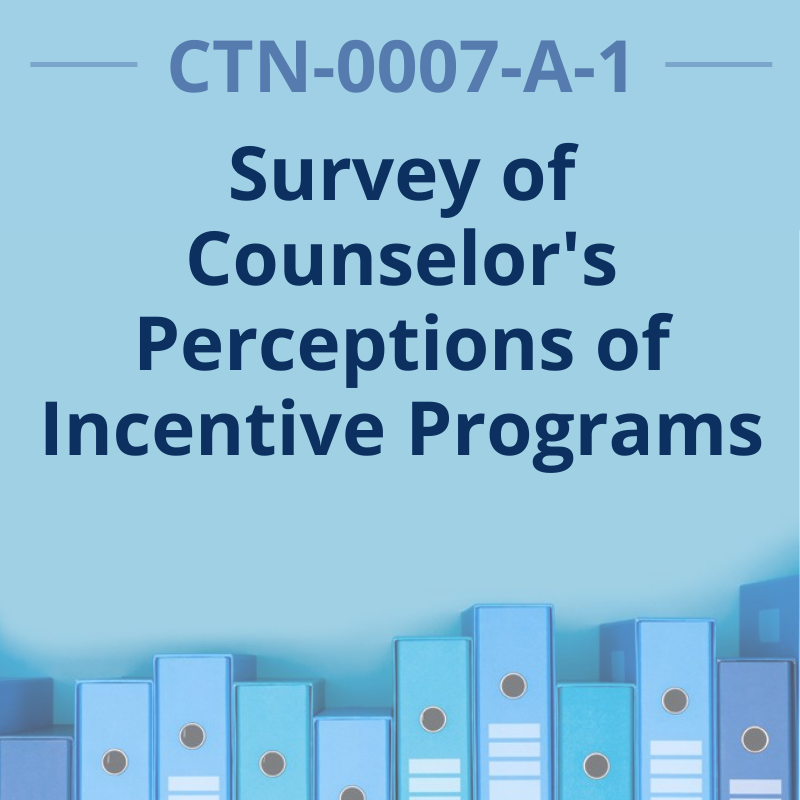CTN-0007-A-1: Survey of Counselors’ Perceptions of Incentive Programs

Kimberly Kirby, PhD
Lead Investigator
Behavioral Interventions Research
Treatment Research Institute
kkirby@tresearch.org
In this study, counselors were recruited from eight MIEDAR treatment sites and seven matched non-MIEDAR sites within the same CTN nodes, and asked to complete the Provider Survey on Incentives (PSI). Only non-MIEDAR sites that had never participated in a formal incentives program were matched with the MIEDAR sites. Primary matching criteria were program modality (drug free or methadone outpatient) and program size as determined by number of counselors at the treatment program. The PSI solicits opinions about efficacy and limitations of incentive programs as well as philosophical/moral attitudes that might be a barrier to adoption. It has two scales: one for tangible incentives and one for social incentives. Both of these scales indicate the degree of positive (high score) or negative (low score) beliefs about incentive interventions. The hypotheses are: (1): Providers that have participated in an incentive program will have more positive endorsements and fewer concerns about incentive programs than will providers that have not used incentives; and (2): Providers will have more positive endorsements and fewer concerns about incentives programs that rely on social reinforcers as compared to those that rely on tangible incentives.
Primary Findings
An intent-to-treat analysis found no differences in the PSI summary scores of providers in CM program versus matched sites, but correcting for experience with tangible incentives showed significant differences, with providers from CM sites reporting more positive opinions than those from matched sites. Some differences were found in opinions regarding the costs of incentives, and these generally indicated that participants from CM sites were more likely to see the costs as worthwhile. The results from the study suggest that exposing community treatment providers to incentive programs may itself be an effective strategy in prompting the dissemination of CM interventions.

Results Article: Kirby KC, Carpenedo CM, Stitzer ML, et al. Is Exposure to an Effective Contingency Management Intervention Associated with More Positive Provider Beliefs? Journal of Substance Abuse Treatment 2012;42(4):356-365. [get article]
Related Studies
- CTN-0006: Motivational Incentives for Enhanced Drug Abuse Recovery: Drug Free Clinics
- CTN-0007: Motivational Incentives for Enhanced Drug Abuse Recovery: Methadone Clinics
- CTN-0007-A-2: Economic Evaluations in the CTN — Methods & Applications
Related Resources